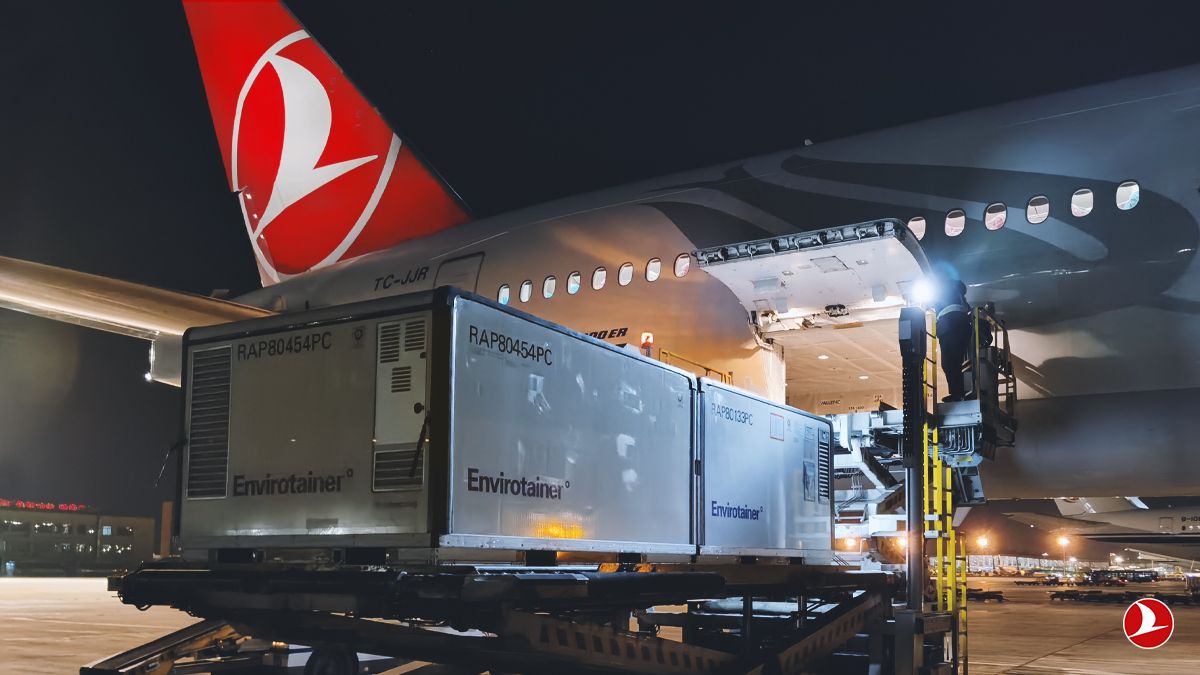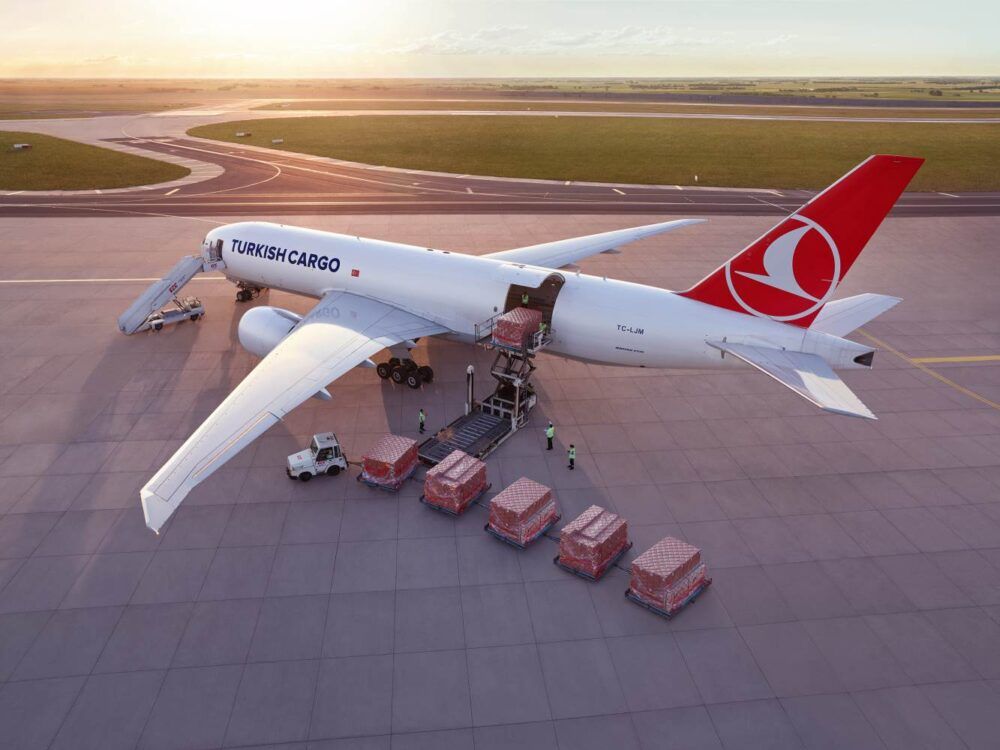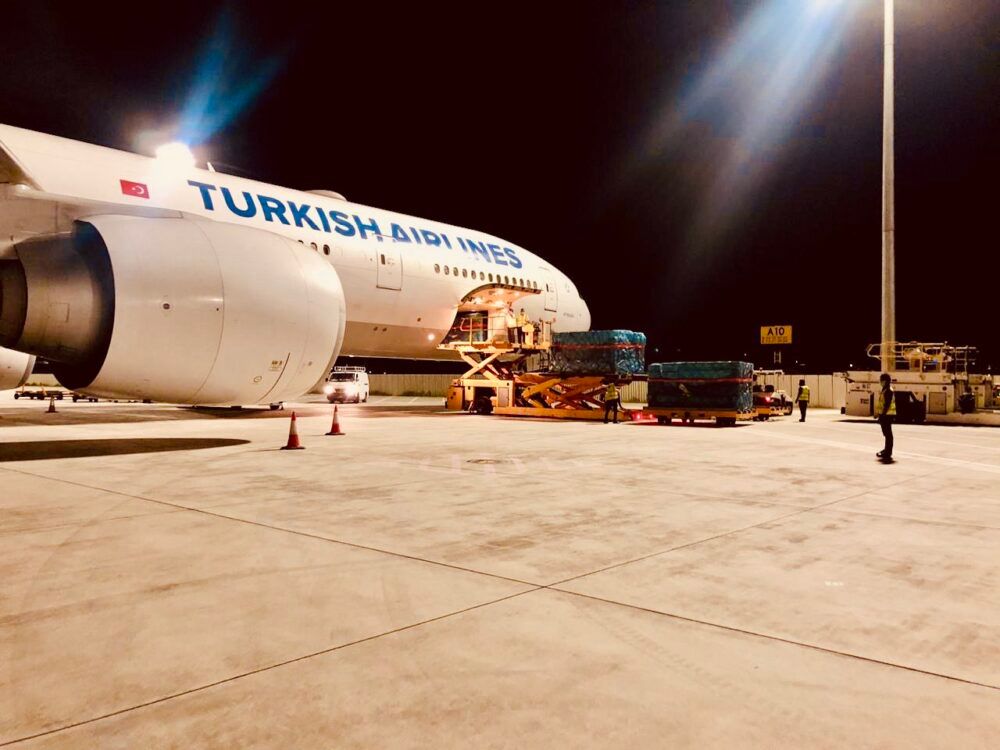Turkish Airlines has today become one of the few major airlines to post a profit for the first quarter of 2021. The airline netted $61 million in profit, despite passenger revenues being down 55%. Much of that success has been down to cargo operations, which saw revenues soar by 77% year on year. A significant proportion of that cargo capacity is actually being delivered by passenger planes.
Turkish Airlines posts a profit for the first quarter of 2021
Turkish Airlines has survived the perils of 2020 in relatively good shape. The airline's fortune continues to be strong going into 2021, as its first quarter results revealed. While passenger traffic was down year on year by 48% and revenues seeing a 55% slump, the airline was one of the very few that actually posted a net profit.
Total revenue for the quarter was $1.8 billion, down 29% year on year. But accompanying that was the news that Turkish Airlines netted a profit of $61 million. This achievement was largely down to strong performance on the cargo side, which Turkish Airlines said was up 77% compared to the same period last year. The airline commented,
“Turkish Airlines partly compensates diminishing demand on the passenger side with a strong cargo transportation performance. Our Incorporation has made a significant contribution to the transportation of medical supplies in the combat against COVID-19 outbreak.
“The Incorporation has achieved to maintain its strong growth trend in the cargo market over the last decade and consequently, cargo revenue increased by 77% during the first quarter of 2021.”
In February, Turkish Cargo became the fifth-biggest cargo operator in the world. But it wasn’t only its fleet of 25 dedicated cargo aircraft that contributed to its success.
Stay informed: Sign up for our daily and weekly aviation news digests.
More than 10 passenger planes flying cargo
With fewer passenger aircraft flying cargo in belly holds, rates for shipments have skyrocketed. IATA said today that air cargo demand continues to outperform pre-COVID levels (March 2019), with demand up 4.4%. March demand reached the highest level recorded since the series began in 1990.
To capitalize on this demand, Turkish Airlines has turned to its underutilized passenger fleet to provide additional capacity. It is already operating more than 10 passenger widebody aircraft for cargo, and isn’t shy about adding more in the coming months. In its quarterly report, Turkish Airlines said,
“Cargo operations are continuing at full capacity with freighters and more than 10 wide body passenger aircraft are being utilized for cargo operations. The number of passenger aircraft utilized in cargo operations may also be increased depending on the cargo demand environment and passenger flight restrictions”
The net result of the airline’s ability to pivot to more cargo operations amid the pandemic saw it bringing in $824 million in the first three months of the year alone. That compares to just $466 million in 2020.
Turkish Airlines CEO İlker Aycı commented on the results today saying,
"As the pandemic process continues with devastating effects on the global aviation industry, this performance can only be described as 'coming through with flying colors'."
To post a profit in this uncertain operating environment is certainly something to be proud of.



